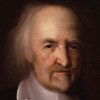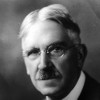“ The knowledge of things may be acquired not merely by experiencing the things themselves, but by experiencing other things; since by virtue of the light of the active intellect man can go on to understand effects from causes, and causes from effects, like from like, contrary from contrary. ”
Thomas Aquinas, Summa Theologica (1274). copy citation
| Author | Thomas Aquinas |
|---|---|
| Source | Summa Theologica |
| Topic | understanding virtue |
| Date | 1274 |
| Language | English |
| Reference | |
| Note | Translated by Fathers of the English Dominican Province |
| Weblink | http://www.gutenberg.org/cache/epub/19950/pg19950-images.html |
Context
“And hence, as the soul of Christ knew by infused knowledge all things to which the passive intellect is in any way in potentiality, so by acquired knowledge it knew whatever can be known by the action of the active intellect.
Reply Obj. 1: The knowledge of things may be acquired not merely by experiencing the things themselves, but by experiencing other things; since by virtue of the light of the active intellect man can go on to understand effects from causes, and causes from effects, like from like, contrary from contrary. Therefore Christ, though He did not experience all things, came to the knowledge of all things from what He did experience.
Reply Obj. 2: Although all sensible things were not subjected to Christ's bodily senses, yet other sensible things were subjected to His senses;”
source



